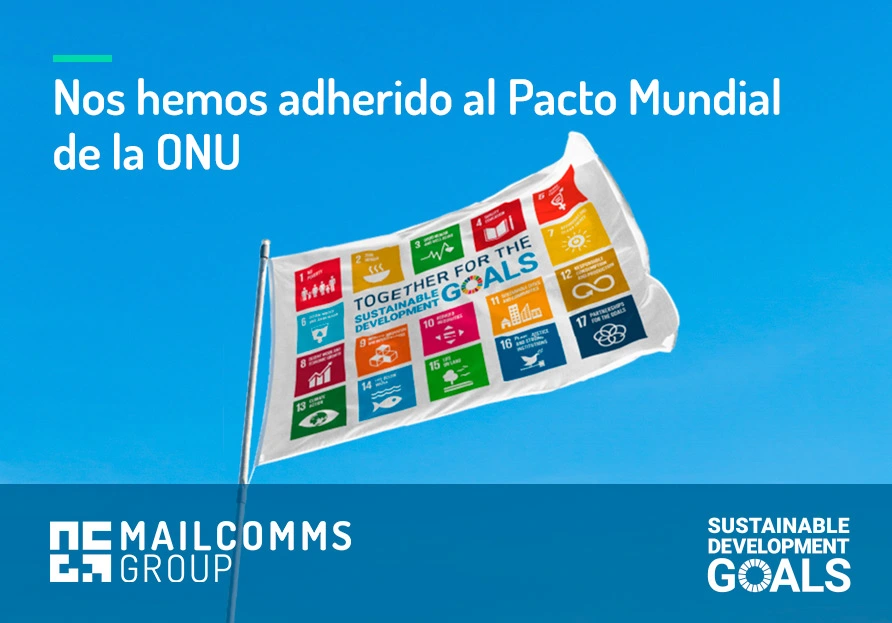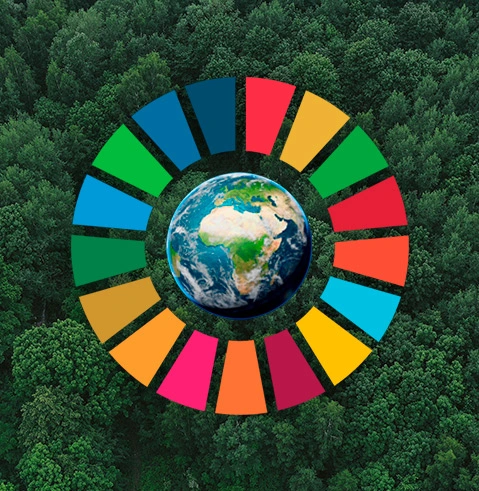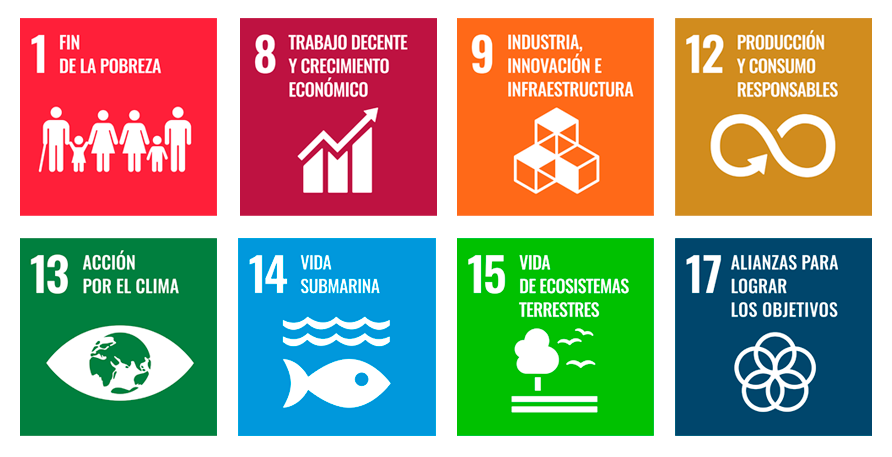
Introduction
We have joined the UN Global Compact, the world’s largest corporate sustainability initiative. Among many other things, this means that we at MailComms Group, like all other participating companies and organizations, are committed to aligning our operations with the ten universally accepted principles affecting areas such as human rights, labor standards, environment and anti-corruption.
But what is the UN Global Compact and what is it for? We explain it to you in this article.
UN Global Compact
Launched in 2000, the UN Global Compact is a global corporate sustainability initiative to which more than 21,000 entities from 160 countries have adhered. In addition, in line with its collaborative identity, there are 70 local networks around this pact that develop its principles adapted to the particular realities of each country. Spain has one of these networks, one of the most important in terms of the number of members, 1,600 organizations, the progress reports or sustainability reports submitted, the performance demonstrated and the solutions implemented.
In addition to respecting and promoting the ten UN principles, the signatories are working to take action to achieve the UN Sustainable Development Goals, as we have been doing for years. Indeed, this accession is a natural step in our sustainability strategy and a major step forward in our contribution to one of our preferred SDGs, SDG 17: Partnerships to Achieve the Goals. And the ultimate goal is to care for the planet and all its life forms, as well as to leave a positive legacy for generations to come.
On this page, you can search for the company’s member companies in Spain. You will find us as MailTecK, the company that created the group.
Why is this covenant necessary?

Collaboration among all actors in society is essential to reverse the effects that climate change is having on the planet, its ecosystems and all species, including the people who inhabit it. This vision in the form of a necessary alliance was made explicit with the launch of the UN Sustainable Development Goals, for which the organization has sought, from the outset, the contribution and responsibility of governments and public authorities, citizens and the business community. Precisely the existence of this global pact and the adhesion of companies from all over the world is desirable for:
- The promotion of sustainable practices that benefit the environment and society in general.
- The establishment of a reference framework based on universal standards in sustainability and human rights.
- Promoting transparency. Member companies are required to report annually on their progress.
- Promoting innovation to offer more respectful and sustainable products and services.
- Strengthening relationships with stakeholders, including customers, employees and local communities.
- Improved corporate image and reputation through ethical and responsible practices.
The UN Global Compact is therefore a catalyst for companies around the world to integrate sustainability into their business and make a positive contribution to global sustainable development.
Initiatives launched
Since its inception 24 years ago, the UN Global Compact has produced a large number of valuable initiatives.
In accordance with its spirit, some of the most relevant of these have to do with the creation and strengthening of alliances in the private sector, and also between companies and the public sector, to ensure that thousands of companies, now more than 21,000, place sustainability in a preeminent position when designing their business strategies. The pact has also strongly promoted its 10 principles and the achievement of a universal consensus around them.
On the other hand, and as one of its main tools, it requires signatory entities to prepare regular reports on their progress in implementing the principles and their contribution to the SDGs. The periodicity depends on the type of organization; for companies the obligation is annual and for NGOs, biennial.
Another main set of activated initiatives is directly related to raising awareness and support for the 2030 agenda and the SDGs, with companies as key development agents, but reaching out to other strata such as, mainly, citizens and public bodies.
In short, through its actions, the Global Compact seeks to create a global movement of responsible companies that assume an essential role in promoting sustainable development.
The participation of the MailComms Group
At MailComms Group we have joined (through our company MailTecK) to, among other things, have access to the best practices existing in the market and train our professionals in sustainability, supply chain and labor relations issues. In fact, two staff members have already attended the 6-month Sustainable Supplier Training Program to learn and bring knowledge to the group. The initiatives related to the covenant will also allow us to improve our efficiency, rationality and impact minimization, something very significant considering our activity in the printing area.
 Our desire is to be in continuous contact with the pact, its networks, and other companies to optimize our work for sustainability, from our day-to-day work and through the organizations and people we can advise or influence. On the other hand, with our membership we acquire a clear commitment to accountability with the preparation and publication of annual monitoring reports (CoP). These analyses are composed of interesting data on governance, sustainability and social commitment. In this way, we will be more objective and transparent, and we will obtain key indicators that will help us to show our progress and make progress towards our goals.
Our desire is to be in continuous contact with the pact, its networks, and other companies to optimize our work for sustainability, from our day-to-day work and through the organizations and people we can advise or influence. On the other hand, with our membership we acquire a clear commitment to accountability with the preparation and publication of annual monitoring reports (CoP). These analyses are composed of interesting data on governance, sustainability and social commitment. In this way, we will be more objective and transparent, and we will obtain key indicators that will help us to show our progress and make progress towards our goals.

PARTICIPATE IN #ODSforflag.
